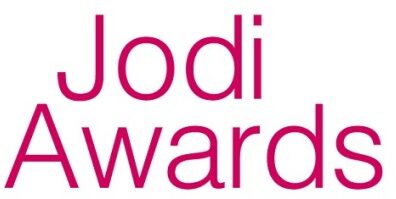Edinburgh City Libraries – Extending access to library and Council services for people who are bind and partially sighted
The project
This new locally based service, operating at all libraries, employs new technology, trained staff and volunteer support to enable people to live more independently. It supports people’s information, learning and employment needs while linking them to local community initiatives and social activity. The emphasis is on opening up access to information and learning while embedding this access as part of day to day library business. It is meeting the ambition of the Scottish Government Success In Sight strategy ‘to enhance the inclusion, participation and independence of blind and partially sighted people’, while working towards implementation of the UK Six Steps.
Objectives
- Support inclusion, independence and participation of blind and partially sighted customers by offering high quality local access to library and council services.
- Signpost and link customers to other support organisations.
- Develop confidence of customers through sensitive and skilled staff support and the use of new technology
- To meet all the UK Six Steps to improving access to library services as agreed by Share the Vision and the Society of Chief Librarians http://readingsight.org.uk
- To further develop the service to include people affected by all sensory impairments.
- Ensure service is sustainable through incorporating assistive technology in upgraded public computer equipment, staff training and use of volunteers.
User involvement
Planning: Seven focus groups were held in Nov/Dec 2013 with both current and potential customers – from children to older people and including people who are deafblind. The information from the focus groups helped to shape the content of the service and the approach taken, such as which libraries to include in the first phase, and customer testing of new technology. Customers continue to feed into service development through monthly meetings and day to day informal feedback to library staff. RNIB supported the initiative and were involved in advising on implementation as well as in identifying focus group members and promotion of the service through the newsletter. Lothian Sound also used to promote service.
Design: The consultation feedback was collated and used to draw up the service plan. The plan was influenced by focus group feedback and included investment in redesign of library spaces to meet specific needs, investment in staff training and equipment, a transition plan for existing customers and new partnership proposals.
Implementation: The programme was launched immediately following consultation at those libraries selected by focus groups. Organisations such as Guide Dogs Scotland, Share the Vision and RNIB, as well as their members, were involved in developing staff training and in suggesting equipment for the project. It was decided to develop activity at places where people were already meeting and a reading group for visually impaired people was set up at the RNIB centre and libraries.
Testing: Customers were fully involved in testing of the concept at three pilot libraries. Customers are involved in inputting to the project as it develops by making suggested improvements and in assessing the suitability of guiding for the Central Library service.
Evaluation: A fortnightly evaluation meeting is held with champions, and a monthly social event is held in order to hear customer views about the new service. Staff attend other group meetings. One meeting was, for example, with a Visually Impaired Reading Group to hear about customer experience. This is fed back to the project team to take appropriate action.
The future
As the service is delivered locally by library staff it is inherently sustainable as it is part of day to day usual library business. The ongoing staff training will help support sustainability as will the use of some volunteers and peer supporters through the RNIB. There will be regular programmmes of customer training sessions and events in libraries and other locations.
Some of the judges’ comments about this initiative were:
Library service champion a very good idea – nothing like having grassroots people keeping an eye on things and keeping them going.
The focus of inclusivity is commended and the fact that it is supporting blind and visually impaired peoples information needs on a broad level.
Impressed by dedication. Sustainability built-in through training, etc. Great to see a champion in each library – they’re doing it well.
Doing something to a unique level in Scotland. Pro-active, dedicated and working hard at what they do.
